What do Bengal cats eat? You ask us, and we will tell you. First, like all other cats, the Bengal cat needs a wholesome diet to stay healthy.
However, they have their own set of dietary requirements. As an exotic breed of cat with instincts, their diet must be tailored to meet their nutritional needs.
This article will help you understand what Bengal cats eat and why it is essential for them to do so. If you adopt a Bengal cat or thinking of doing so shortly, it is in your best interest to read on and know what you should feed them and how often you should do so. Let’s go through this article together.
What do Bengal Cats Eat?
The first question in everyone’s head when it comes to feeding your Bengal cat is, what do they eat? Bengal cats are known for being an exotic breed. What does it mean? It means that they have an unfamiliar diet.
Bengal cats have a natural tendency to be more carnivorous as opposed to other domestic breeds. This means that their diet should be rich in proteins and other nutrients that can be derived from animal-based food items.
To meet the requirements of Bengal cats, you should feed them a mix of high-quality dry food and wet food.
The quantity of each type of food recommended by specialists is:
Dry Food: 1/3rd of the daily diet.
Wet Food: 1/3rd of the daily diet
Human-grade canned food: 1/3rd of the daily diet.
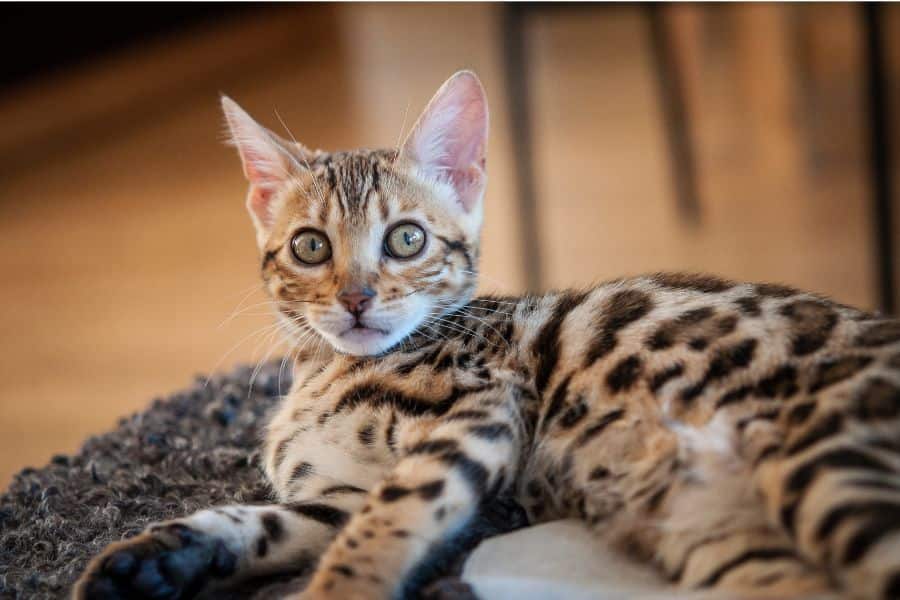
Why is a Healthy Diet Important for Bengal Cats?
Your Bengal cat’s diet should be rich in protein and fat, with moderate carbohydrates. If you see your Bengal cat having a keen interest in the kitchen while you are cooking and eating, it indicates that they are protein-deficient.
The dietary requirements of Bengal cats differ from that of other breeds. Other breeds of cats thrive on a carbohydrate diet, whereas Bengal cats need a protein-rich diet. Because of this, you must be careful about what Bengal cats eat.
If you ignore what Bengal cats eat, you might feed them substandard food that is not nutritious and contains high levels of carbohydrates and low levels of proteins. A diet that is low in protein and rich in carbohydrates is not suitable for Bengal cats.
A diet low in protein can negatively impact your Bengal cat’s growth and development. If your Bengal cat is growing up, a diet low in protein can stunt its growth, or your Bengal cat is an adult, and a diet low in protein can cause muscle wastage and other health issues like osteoporosis and kidney failure.
The Importance of Proteins for Bengal Cats
As mentioned above, Bengal cats are naturally inclined towards meat. They are known to be obligate carnivores, meaning they need to consume only meat as their dietary source.
It’s not because they are greedy; they require a large amount of protein and other nutrients that can only be derived from animal-based food items.
A diet rich in proteins is essential for the growth and development of your Bengal cat. Proteins are an important source of energy for your Bengal cat.
They help your Bengal cat stay active and alert throughout the day. Proteins also help your Bengal cat maintain their muscles and bones.
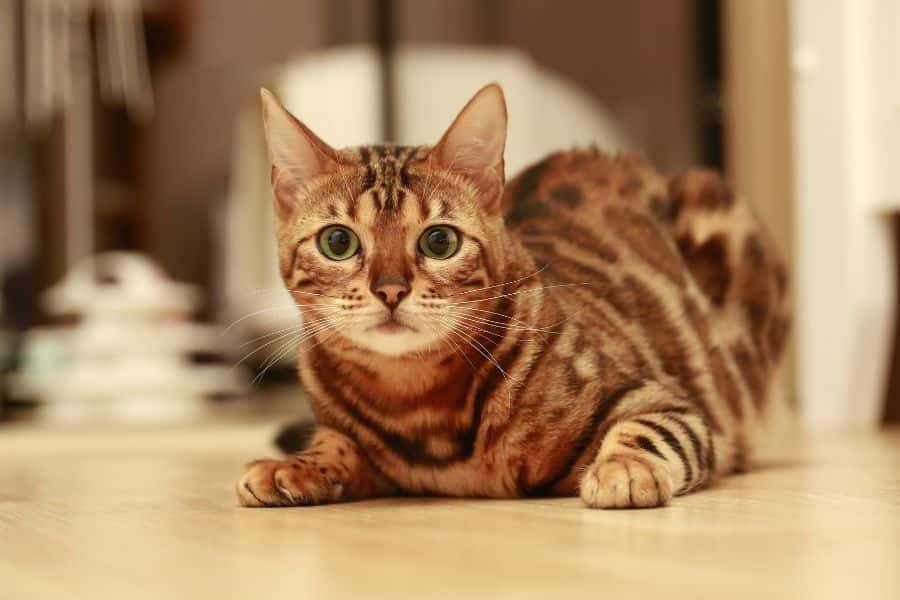
Tried and Tested Food Items for Your Bengal Cat
Certain food items have been tried and tested for Bengal cats. We have listed down a few things that you should feed your Bengal cat.
As mentioned above, a diet rich in proteins and low in carbohydrates is ideal for Bengal cats.
So, below are the food items that are rich in proteins:
Meat products
Meat, fish, and poultry are all rich sources of proteins.
Dairy products
Milk, cheese, and yogurt are all rich in proteins. You can also share your Bengal cat tofu, as tofu is a good source of proteins.
Eggs
Eggs are enriched with proteins. You can feed your Bengal cat either raw or cooked eggs.
What Are The Bad Foods For A Bengal Cat?
Certain food items are not suitable for Bengal cats. You should avoid feeding your Bengal cat foods rich in carbohydrates as these are not ideal for their health.
Here are a few examples of foods rich in carbohydrates: Rice, oats, and wheat are examples of grains.
You should avoid feeding your Bengal cat foods rich in grains as they are bad for their health.
Sugars are rich in carbohydrates and bad for your Bengal cat’s health.
Fruits are rich in carbohydrates and not suitable for Bengal cats.
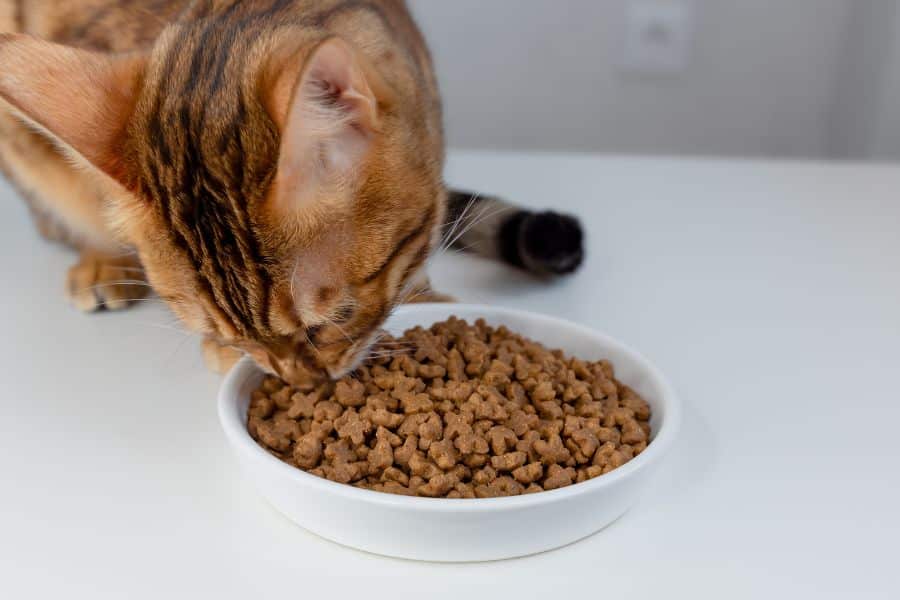
How Much Should You Feed A Bengal Cat Daily?
The next question in your mind when you start feeding your Bengal cat is how much should you feed a Bengal cat?
As with all other breeds, Bengal cats also require two daily meals. You should provide them with fresh water throughout the day.
How to Pick the Right Food for Your Bengal Cat?
As mentioned above, a diet rich in proteins and low in carbohydrates is ideal for Bengal cats. Now, the choice of food item for your Bengal cat is entirely on you. You can either feed them food items that are rich in proteins, or you can buy foods that are enriched with carbohydrates.
Whichever you decide to do, ensure that the diet you are feeding your Bengal cat is rich in proteins and low in carbohydrates.
Ensure that the diet you provide your Bengal cat is rich in proteins and contains essential vitamins and minerals. A diet that is not balanced is not suitable for Bengal cats.
A diet that is not balanced can cause health and developmental issues in your Bengal cat.
The 4 Best Cat Foods for Bengals
The Bengal cat breed is a hybrid cat that can be super fussy about its food. That’s why you must know the best cat foods for Bengals if you keep one as a pet. Cats are known to be picky eaters, and the Bengal breed is no exception. They won’t eat their food again if they don’t like it.
Fortunately, some great options are available when picking cat food for your Bengal. These four best cat foods for Bengals are some of the top recommendations on the market right now.
The following list will explain why these top four picks are perfect for your new feline friend and offer advice on what to look for to ensure your cat gets exactly what they need from its diet.
Purina One Tender Touch
Purina One Tender Touch is an excellent choice for Bengals and other cats. It boasts balanced nutrition and is formulated to be complete and balanced for adult cats. This food is easy to digest and helps maintain your cat’s healthy digestive system, which can be important for Bengals and other cats.
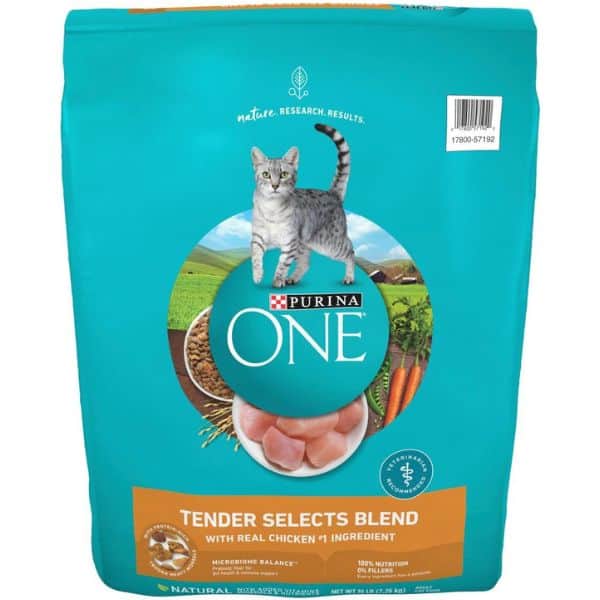
Also, it is made without corn, wheat, or soy, which can be problematic for some cats. This food comes in various flavors, such as ocean fish, poultry, and poultry liver; there’s sure to be something for every cat and Bengal. It has an excellent nutritional profile and a high protein content of about 26 percent, which is ideal for Bengals.
The Purina One has a significant fiber content, which is good for digestion and has a high-fat content, which is suitable for Bengal cats because they are a high-energy breed. The food is also low in sodium, which is ideal for Bengals because they are sensitive to sodium.
Blue Buffalo Wilderness
Blue Buffalo Wilderness is a grain-free, protein-rich food made with natural ingredients and is formulated for all life stages, which is ideal for Bengals.
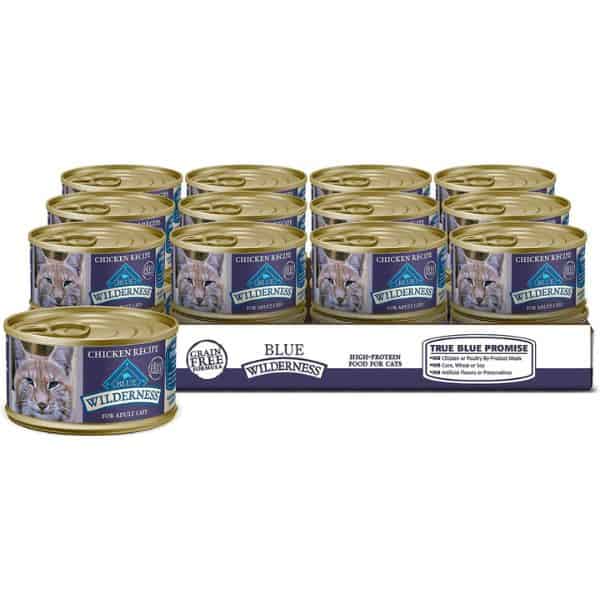
It comes in various flavors and is free of corn, wheat, soy, artificial flavors, and preservatives, which are essential for Bengals because some cats are sensitive to artificial ingredients. It has a nutritional profile designed to help support a healthy immune system and promote healthy skin and hair.
This is one of the highest-rated cat foods for Bengals, and it’s easy to see why. Blue Buffalo food has excellent protein and high-fat content, both critical for Bengals. Also, it has a significant fiber content, which is good for digestion.
This food also has a low sodium content, which is suitable for Bengals because they are sensitive to sodium. This is one of the best options for the Bengals because it has everything they need to thrive.
Wellness Core Dry Food
Wellness Core Dry Food is an excellent choice for Bengals and other cats. This is a grain-free food packed with protein, despite having a low-fat content. This food comes in various flavors and is formulated for all life stages.
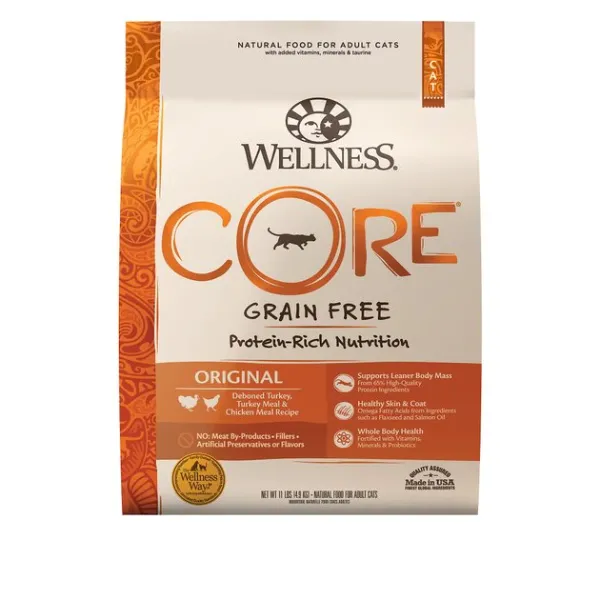
It is also free of corn, wheat, soy, and artificial ingredients. The food is high in protein and fiber and low in fat, making it ideal for Bengals.
In terms of value for your money, this is one of the more expensive options on this list.
Merrick Purrfect Bistro
Merrick Classic Kibble is a grain-free food formulated for all life stages.
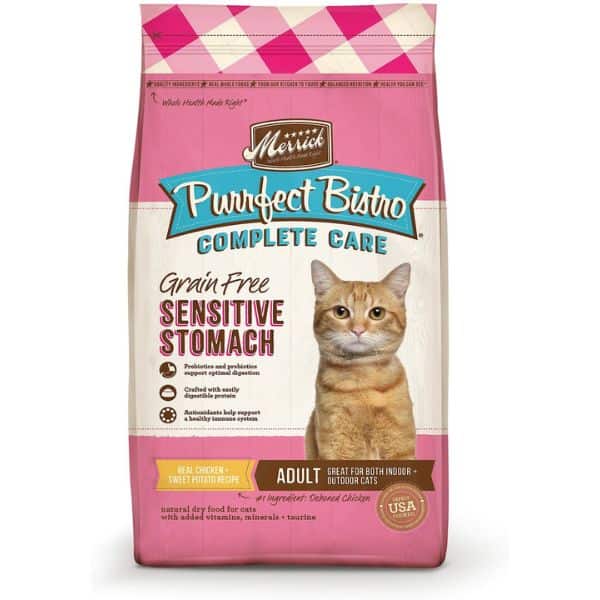
This food has a nutritional profile that’s ideal for Bengals. It’s high in protein and fiber and low in fat, which is what Bengals need. The food also has a low sodium content, which is suitable for Bengals.
It has a higher fat content than other foods on this list. One of the more expensive options available when it comes to Bengals. It’s excellent food, but there are some cheaper options on this list that are just as good.
Conclusion
Bengal cats are an exotic breed of cats with their dietary requirements. Their diet should be rich in proteins and low in carbohydrates.
You must understand what Bengal cats eat and why they must do so. If you adopt a Bengal cat or thinking of doing so soon, it is in your best interest to read on and know what you should feed them and how often you should do so.
Let’s go through this article together – What do Bengal cats eat? They eat a diet that is rich in proteins and low in carbohydrates.
